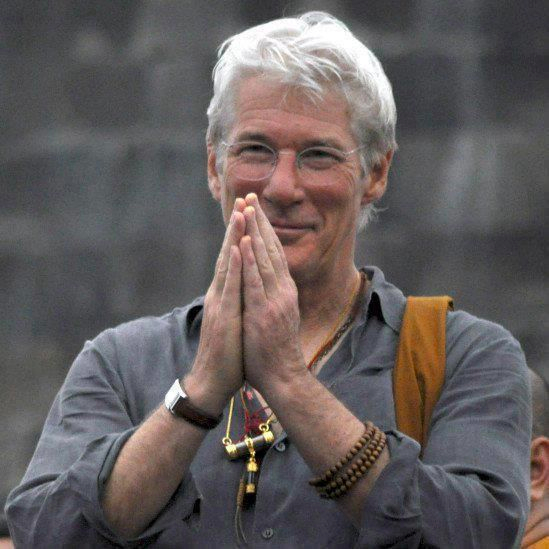Sexiest Man Alive Is Persona Non Grata In PRC

Say you’re producing a project that you hope can qualify as a US-Sino Co-Production.
Or you have a strong, non-Chinese commercial project that you want China to accept as part of its import quota.
Or you’re submitting a script to STX, or Paramount, or a funder/distributor whose films are financed with Chinese money.
…and Richard Gere’s name comes up.
You need to know it’s a non-starter. Zero-sum game: China or Gere, pick one.
Two words: Dalai. Lama.
Back in the ‘80s, when Gere was really The Sexiest Man Alive (late to the party, People Magazine did not crown him until 1999), he and the Dalai Lama grew close. Serious about Gelugpa practice, Gere founded a non-profit dedicated to Tibetan culture, and was said to be on the verge of joining a monastery. Today, he hardly does an interview that does not refer to the Lama, or Tibet in some way.
Two more words: Red Corner.
Gere put himself more squarely in Beijing’s crosshairs in 1997, when he starred in MGM’s Midnight Express-level-hysterical legal thriller. A ham-fisted attack on Chinese authoritarianism in which Gere is railroaded through China’s courts (it is currently streamable/downloadable via Showtime, Amazon Prime, and iTunes, its social critique is often laughably undermined by American exceptionalism and white-man privilege. Something about it evidently had personal resonance, as Gere has continued to grandstand in ways that echo speeches from the film: calling for a boycott of the 2008 Beijing Olympics, he announced, “You don’t achieve greatness through human rights abuses, through abusing your minorities, or abusing political dissidents. You achieve greatness by creating an open society, not a closed one.”
In 2009, after Gere starred in a Fiat commercial that showed him driving a new Lancia Delta from Hollywood to the snowcapped hills of Tibet, the carmaker had to apologize to the Chinese government in order to continue doing business with them.
So, if you’re hanging with Chinese producers, and at some point someone casually inquires what you think of Gere, this is what they care about, not whether you regard his performance as a blustery, Miles Davis-loving newspaper columnist in Runaway Bride as a guilty pleasure.
In short, if you’re hoping to tap the Chinese market, find another silver-haired laowai hunk as your banker/CEO/scientist/international man of intrigue or (token) white knight. Hiring Gere or any actor who has openly antagonized China’s leadership will only throw a wrench in your film’s works.





